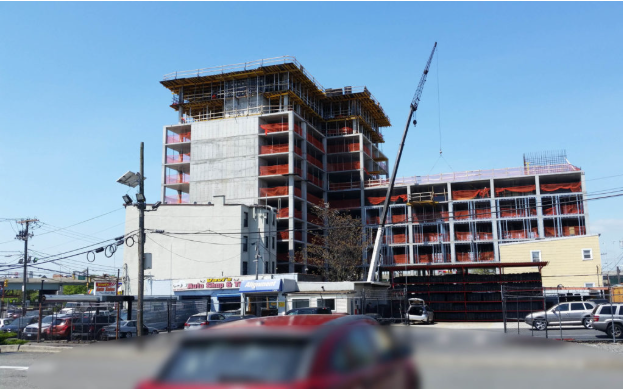CNC tube bending refers to the latest method of bending metal tubes using computer-controlled machinery. Metal tubes are bent into the desired shapes without flattening or distorting them using CNC machines. CNC tube bending is extensively applied in Canada across various sectors. From automobile manufacturing to furniture production, the technology allows for the production of strong, accurate, and stunning metal components.
If you want to know where CNC tube bending is used in Canada, here below is an overview of the major industries that rely on it.
1. Automotive Industry
The automotive sector is among the largest consumers of CNC tube bending. Most components of a vehicle are bent tubes. Seat frames, fuel lines, exhaust pipes, and roll cages are but a few of them. The bends have to be extremely accurate so that the components will mesh well together and perform safely.
Windsor and Oshawa in Canada are famous for car manufacturing. These cities both have industries that utilize CNC tube bending machines day in and day out. Since it is accurate and high speed, CNC tube bending enables car manufacturers to save time and minimize wastage.
2. Furniture Industry
Metal tube furniture is common in homes, companies, and public areas. Tables, chairs, bed frames, and bookcases usually feature bent tubes employed as supports, legs, and frames. CNC tube bending permits designers to produce smooth curves and neat angles, which make the furniture strong and fashionable.
It is applied in cities such as Toronto, Montreal, and Vancouver, where most furniture manufacturers apply CNC tube bending to make contemporary designs. It also enables local companies to make furniture in small batches but maintain the quality level high.
3. Construction and Architecture
In building, bent tubes are applied in handrails, guardrails, supporting frames, and decorative items. Architects and engineers apply CNC-bent tubes since they can achieve smooth curves that give buildings a contemporary appearance. The technique also yields strong parts that can endure heavy use as well as harsh weather conditions.
CNC tube bending also applies to stair railings, balcony railings, and ramp railings. It applies to bicycle racks and playground equipment for use outdoors. Developers in Canada’s expanding cities utilize CNC bending in order to meet safety codes and design requirements.
4. Aerospace Industry
Canada also has a dominant aerospace industry, with business firms producing aircraft parts for both domestic consumption and export. Aircraft have numerous light metal tubes that are utilized to transport fuel, air, and hydraulic fluid. The tubes need to be curved very precisely in order to fit in tight spots without stress or leakage.
CNC tube bending is the best work for this purpose because it can produce intricate bends with great precision. Aerospace industries in Montreal, Winnipeg, and elsewhere have faith in this process to satisfy stringent safety and quality standards.
5. Medical Equipment
The healthcare industry also employs CNC tube bending to manufacture hospital beds, wheel chairs, walkers, IV stands, and other medical equipment. The products usually involve metal frameworks that require precise bends in order to make them safe and convenient.
In Canada, most health equipment manufacturers utilize CNC tube bending to manufacture products that are durable and comfortable. They are also able to design special products for individuals with special needs through the same process.
6. HVAC and Plumbing Systems
Plumbing, air conditioning, heating, and ventilation systems generally require metal tubes to carry air, water, or gas. The tubes must be bent so they can be inserted into ceilings, walls, or constricted areas within buildings. CNC bending guarantees the tubes are in the correct shape without the development of kinks or cracks.
Canadian industries use CNC tube bending in constructing ductwork, refrigerant lines, and water pipes that are effective and durable. The procedure also decreases the fittings and joints utilized, minimizing the possibilities of leaks.
7. Shipbuilding and Marine
Canada possesses a very long coastline and various shipyards that construct and maintain ships. The ships contain fuel tubes, water tubes, air tubes, and exhaust tubes. The tubes have to be very strong and resistant to corrosion. The tubes employed are mostly stainless steel and copper-nickel tubes.
CNC tube bending assists shipbuilders in designing these systems in fewer bends and joints. This reduces space and improves maintenance. Halifax and Vancouver shipping terminals rely on this technology for small ships and big ones alike.
8. Agricultural Equipment
Farm equipment such as tractors, harvesters, and irrigation kits can employ bent tubes for their hydraulics and bodies. Rural Canadian farmers and farm equipment manufacturers use CNC tube bending to fabricate strong and durable parts that can endure harsh usage.
There are fewer breakdowns in the fields with CNC bending, an asset when planting and harvest time is at peak capacity.
9. Fitness and Recreational Equipment
Metal tubes are used in fitness center equipment, cycles, and playground equipment as well. Tubes have to be durable and withstand repeated movements and usage. Precise tube bending help in forming smooth and safe shapes for products such as pull-up bars, weight benches, and cycle frames.
The machines exist in gyms, parks, and schools within cities and towns all over Canada, thanks to precise bending of tubes.
Final Thoughts
CNC tube bending is an invaluable resource for most industries in Canada. It assists in the production of durable, accurate, and stunning tubes for automobiles, buildings, furniture, aircraft, and many others. The process is efficient, trustworthy, and wastes less, making it a smart option for large factories and small workshops too.
From skyscrapers:to city to farm fields, you can spot CNC tube bending and notching helping Canadians live, work, and travel daily.














Leave a Reply